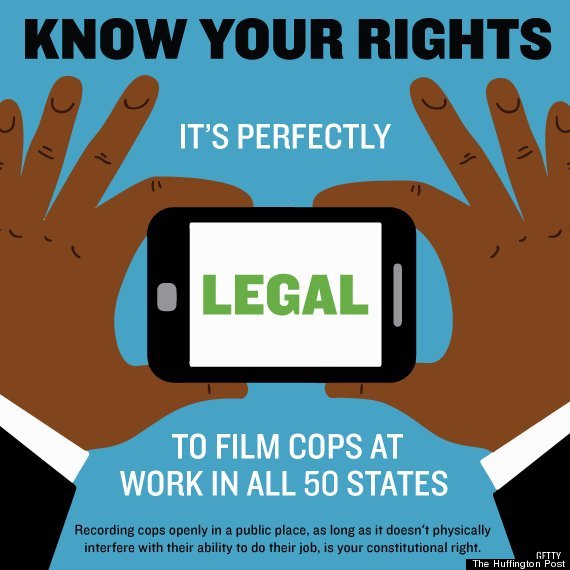HuffPo | Snapping photos of police in Ferguson, Missouri, may have gotten
Huffington Post reporter Ryan J. Reilly arrested Wednesday night while
he was covering protests prompted by the death of Michael Brown, an unarmed black teenager who was shot to death by a police officer.
Reilly
and Washington Post reporter Wesley Lowrey were detained and assaulted
after attempting to film a swarm of police officers inside a McDonald’s.
An officer slammed Reilly's head into a glass window, and Lowery was
shoved into a soda fountain while wearing press credentials around his
neck. Both were later released without being charged with breaking any
laws.
“They essentially acted as a military force,” said Reilly, who was in the restaurant to charge his phone and computer. “It was incredible.”
In recent years, there have been countless cases
of police officers ordering people to turn off their cameras,
confiscating phones, and, like Reilly, arresting those who attempt to
capture footage of them. Despite a common misconception, it’s actually
perfectly legal to film police officers on the job.
“There are
First Amendment protections for people photographing and recording in
public,” Mickey Osterreicher, an attorney with the National Press
Photographers Association, told The Huffington Post. According to
Osterreicher, as long as you don’t get in their way, it’s perfectly
legal to take photos and videos of police officers everywhere in the
United States.
This misconception is pervasive enough that the New York City Police Department circulated a memo last week reminding officers.
“Members of the public are legally allowed to record police interactions,” the memo states, according to the Daily News. “Intentional interference such as blocking or obstructing cameras or ordering the person to cease constitutes censorship and also violates the First Amendment.”
The NYPD’s reminder comes as police activity is in the national spotlight. Just two days after Michael Brown’s death, cops in Los Angeles shot to death an unarmed black man who allegedly struggled with mental illness. And three weeks ago, a New York City police officer put Eric Garner in an illegal chokehold that left him dead after gasping “I can’t breathe!” A bystander caught the entire thing on video.
Those deaths, along with the arrests of Reilly and Lowrey, have raised questions about what, if anything, individuals can do to hold the police accountable for their actions. But one unquestionable right people have is to capture officers on film.
“There’s no law anywhere in the United States that prohibits people from recording the police on the street, in a park, or any other place where the public is generally allowed,” Osterreicher said.



0 comments:
Post a Comment